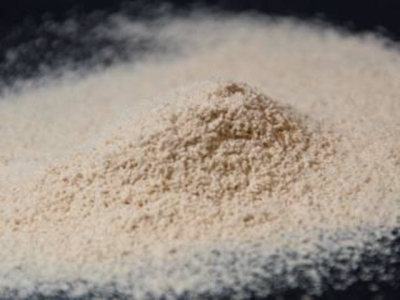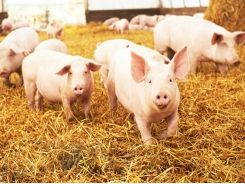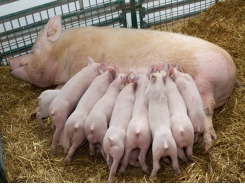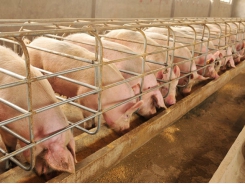3 reasons B vitamins become limiting in pig, poultry feeds

Pigs and poultry continue to require external supplementation of all B vitamins, but certain conditions might lead to deficiencies.
In early research, it was realized that vitamins could be classified in two major categories based on water solubility. The “B” fraction was water soluble, and it was later discovered it comprised several unique and quite distinct compounds. Therefore, the different vitamins in the B vitamin complex were given names such as B1, B2, etc., until B12, the last vitamin, was discovered. Several intermediate names were later discarded as these were found to be either not vitamins or other compounds already discovered. Such were compounds B7 and B8, which are not classified as vitamins today.
All B vitamins share a common characteristic in that among their many and varied functions they all participate in several coenzymes or prosthetic groups. As such, they are vital in almost all functions of the organism, from determining hair color, to respiration, muscle tone and vision. Although vitamin C is also a water-soluble vitamin, it is not included with the B vitamin complex because its role, as an antioxidant, does not coincide with that of the rest of the water-soluble vitamins.
Vitamin needs
B vitamins, unlike the fat-soluble vitamins, are not stored in the body in any significant amounts, with the only exception being B12. Once daily needs are covered, the organism usually discards any excesses ingested through feed. It is important therefore for animals to have a daily supply of B vitamins. In ruminants, horses and rabbits, there is no need for an external supplementation as these animals produce enough B vitamins in their digestive system through bacterial fermentation. In contrast, pigs and poultry require an external source of supplementation for all B vitamins, as the microbial fermentation in their large intestine does not cover their needs under modern production conditions.
In pig and poultry diets, B vitamins are usually supplied through the medium of a vitamin and trace mineral premix that provides all vitamins and minerals -- that is, it ignores contributions from natural ingredients. This premix is added at levels ranging from 1 to 5 kg per metric tons of feed depending on animal age, weight and production cycle. The practice of covering completely the B vitamin needs through a premix disregards the concentration of these vitamins in cereals and other ingredients in the diet. For example, finishing pigs and finishing broilers can easily cover their (low) needs in some B vitamins (and trace minerals) by what is supplied through cereals and other ingredients, but such nutrients are most likely to be found (for security reasons) in most premixes.
Vitamin deficiencies
Deficiencies in B vitamins are quite rare, but once they happen, they are quite difficult to recognize, although they are quite easy to rectify. There are three main reasons why pigs and poultry raised under commercial conditions may develop a B-vitamin deficiency.
First, a single vitamin might have been omitted completely by the premix manufacturer (manufacturing error). As such, this specific vitamin will be completely absent from the final feed, and animals will only receive what is provided by natural ingredients such as cereals and legumes.
Second, the premix might be added at the wrong dosage at the feed mill. For example, the person handling the mixing could make an error in calculating the exact dosage: instead of 10 kg, one may add only 1 kg -- very easy to miscalculate when one transfers amounts from percentages to kg per ton. This is especially true when premixes from different suppliers are used concurrently. In this scenario, all B vitamins will be deficient and clinical diagnosis becomes almost impossible.
Third, although the premix might have been manufactured correctly and added at the proper dosage in the feed, vitamins may still be missing from the feed the animal receives because they have been destroyed during storage or feed processing (loss of potency). Most vitamins are stable for up to twelve months, but once mixed, especially with oxidative trace minerals, they start to lose potency very quickly (Table 1). As such, a premix should be used as fast as possible, usually within three months from manufacturing date. Also, thermal processing (pelleting and extrusion/expansion) destroys certain heat-sensitive vitamins depending on the temperature and time exposed. For this, the common remedy is to over-fortify the diets with these vitamins.
Most vitamins are stable for up to twelve months, but once mixed, especially with oxidative trace minerals, they start to lose potency very quickly.
Related news
Tools

Phối trộn thức ăn chăn nuôi

Pha dung dịch thủy canh

Định mức cho tôm ăn

Phối trộn phân bón NPK

Xác định tỷ lệ tôm sống

Chuyển đổi đơn vị phân bón

Xác định công suất sục khí

Chuyển đổi đơn vị tôm

Tính diện tích nhà kính

Tính thể tích ao




 Maschhoffs launches farm-to-table pig production experience
Maschhoffs launches farm-to-table pig production experience  Study: Porcine plasma boosts litter performance in mature…
Study: Porcine plasma boosts litter performance in mature…